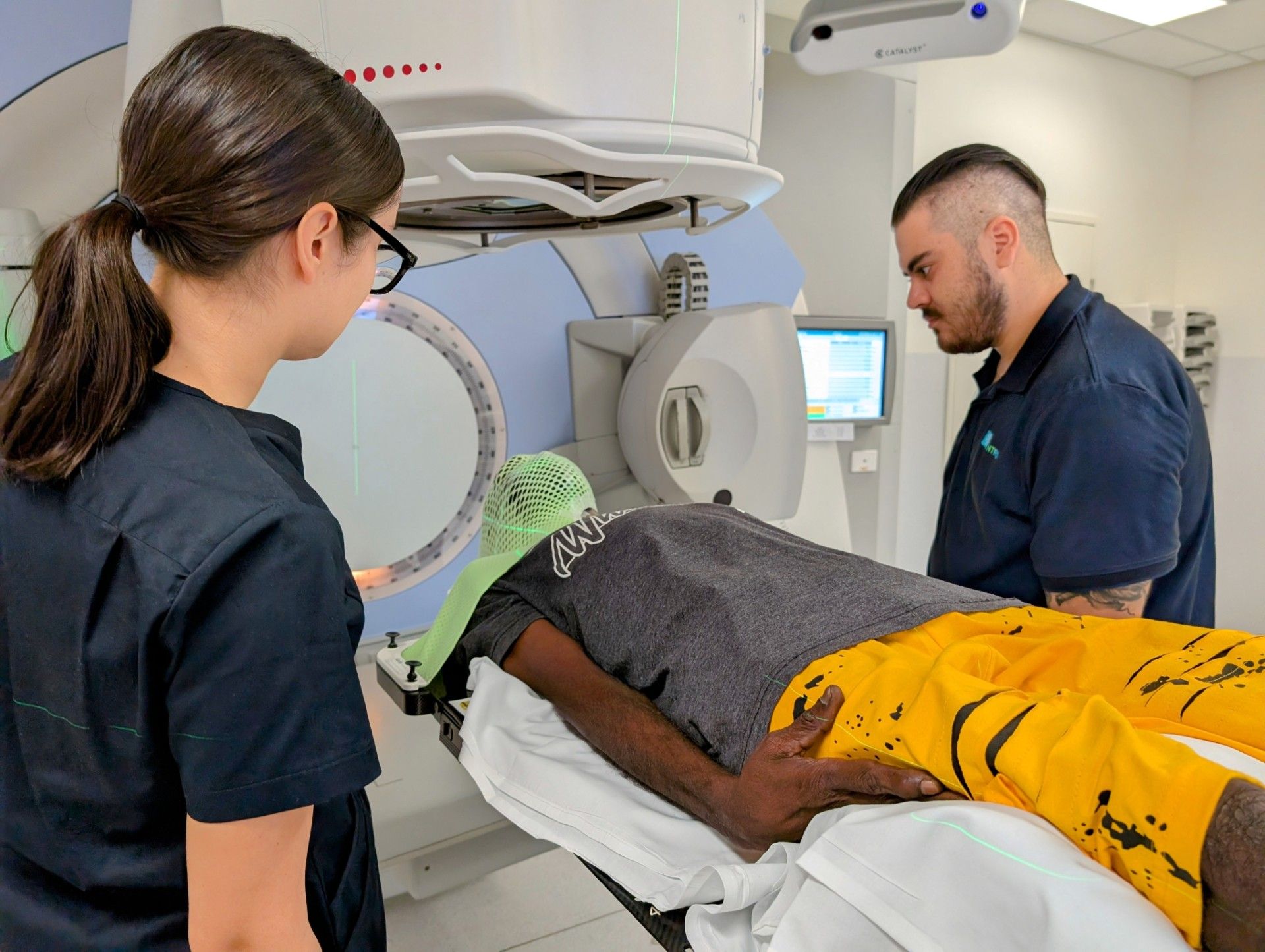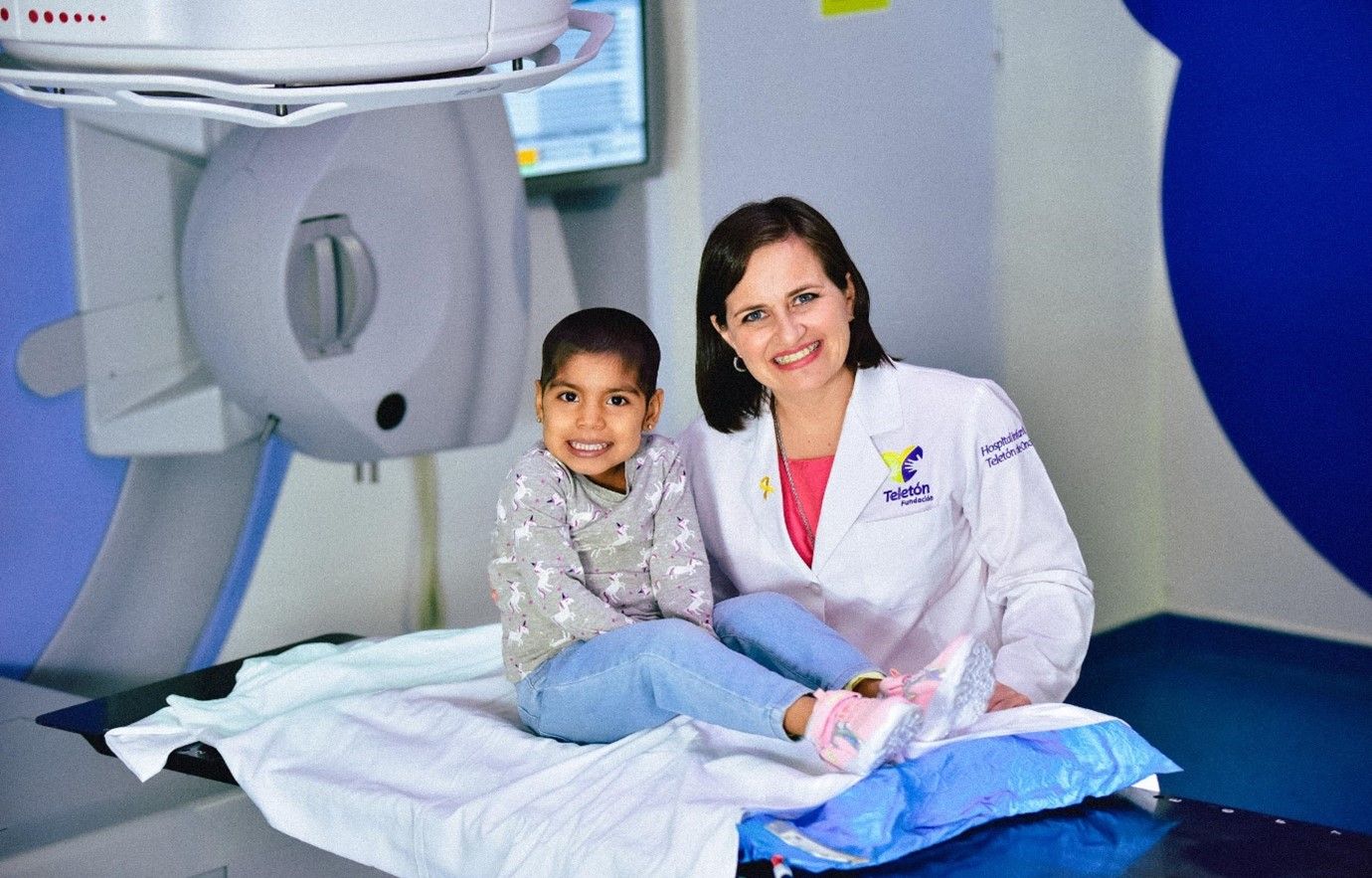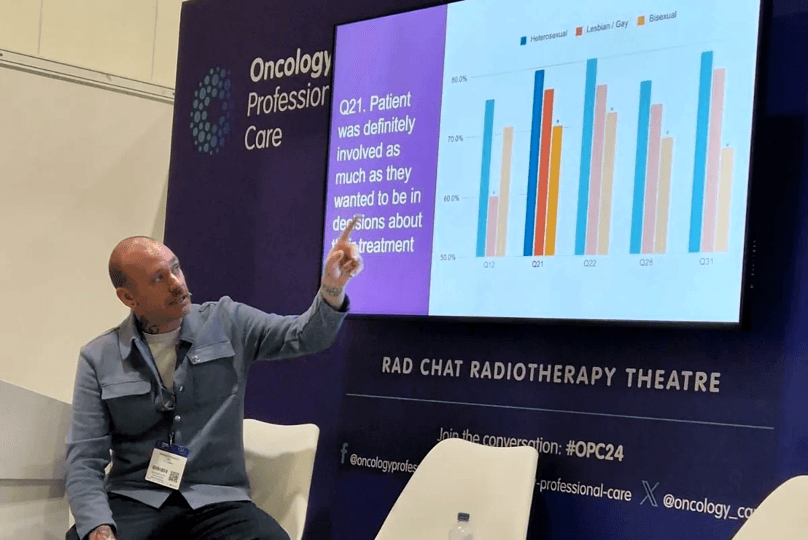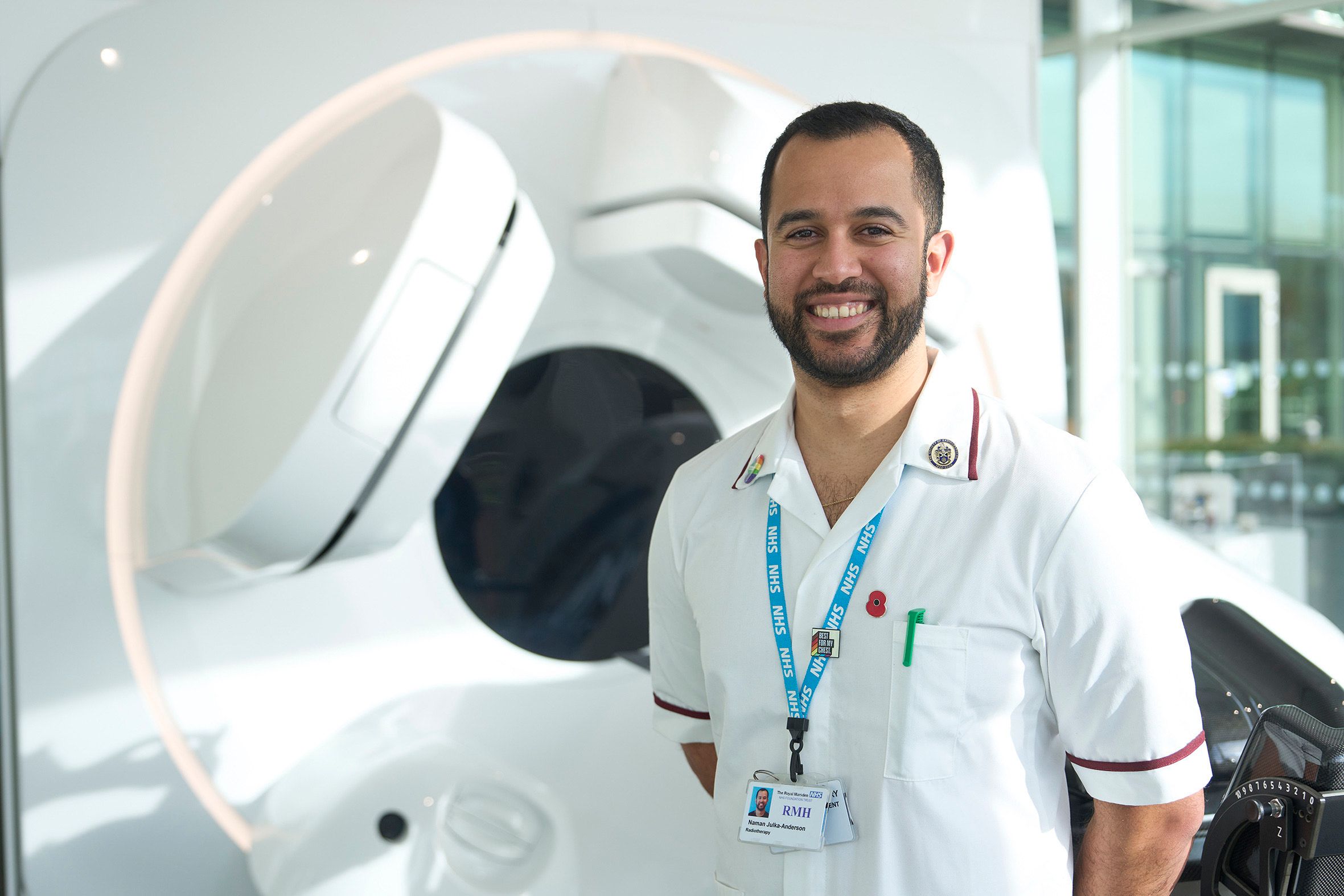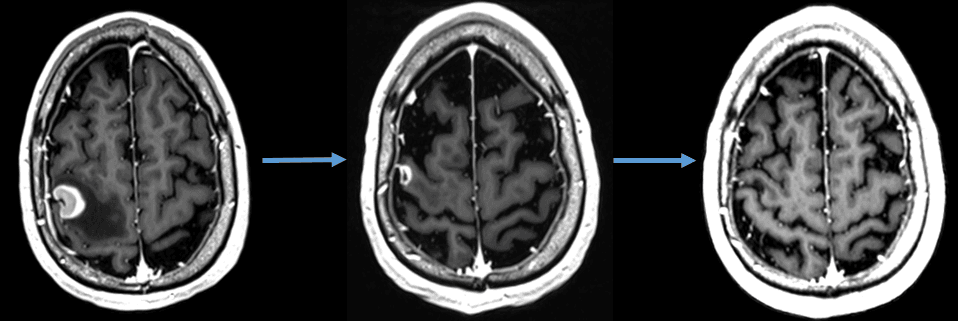Reshaping care for 2SLGBTQI+ patients with cancer
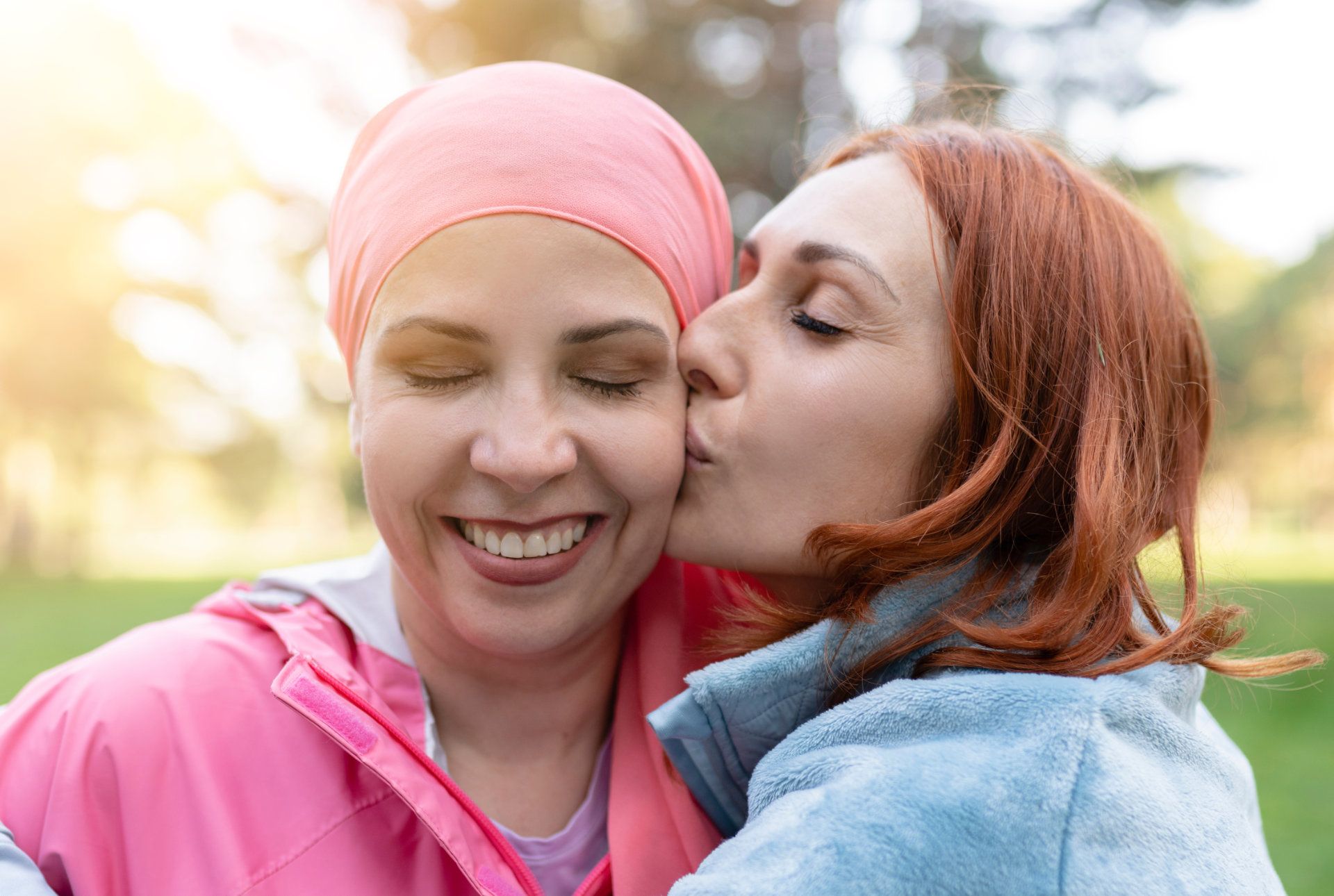
Inclusive, compassionate and non-judgmental health care the goal for all patients
Dr. Amanda Bolderston, co-founder of Queering Cancer, has dedicated her career to reshaping cancer care for LGBTQI+ patients. Drawing on decades of research, she explains that Two-Spirit, lesbian, gay, bisexual, transgender, queer, intersex plus (2SLGBTQI+) cancer patients face profound unmet needs across physical, mental, sexual, and psychosocial dimensions.

“A common challenge we encounter is the lack of understanding and confidence among healthcare professionals in navigating these issues,” Amanda observes. “Moreover, shifting socio-political climates and anti-LGBTQI+ sentiments have deepened isolation and impacted patients’ access to safe healthcare.”
In 2020, Amanda co-founded Queering Cancer (QC)with the goal of transforming cancer care for the sexual and gender diverse community by improving research, resources, and support for patients, families, caregivers and healthcare professionals. “I’m proud to say that our five-year journey has built a robust collection of supportive resources for patients and educated countless practitioners on the unique needs of the 2SLGBTQI+ community,” explains Amanda. As she recounts, patient testimonials, such as: “It was almost as cathartic for me to discover QC as it was the first time I went to a queer dance,” affirm the difference they’ve made to patients

The organization’s impact stems from both research and lived experience. One flagship initiative is a three-year research project - funded by the Canadian Cancer Society - designed to better support transgender and gender diverse individuals diagnosed with gynecological cancer. Amanda comments, "We will be working with the community to develop resources for patients and healthcare professionals. We hope this will have a lasting impact and improve care."
Addressing common misconceptions
In healthcare, Amanda often hears the sentiment: “I treat everyone the same.” While well-intentioned, this approach ignores the unique experiences and traumas that many 2SLGBTQI+ patients bring to the clinical setting.
“2SLGBTQI+ folks may carry experiences of medical mistrust and trauma when they come for treatment.”
“2SLGBTQI+ folks may carry experiences of medical mistrust and trauma when they come for treatment,” she says. “They may not feel safe disclosing their sexual orientation and/or gender identity. This lack of information about who the person is can impact the care we give them, from patient education, psychosocial support, and, in some cases, radiotherapy planning and treatment. We should respect who they are as individuals and provide safe and affirming care.”
Without understanding these nuances, healthcare professionals may inadvertently compromise on the quality of patient education, psychosocial support, or even radiotherapy planning. By shifting focus to personalized care, providers can create safer and more inclusive environments.
Why allyship matters
Central to Queering Cancer's approach is the call for genuine allyship. True allyship, Amanda asserts, involves an “active, consistent, and arduous practice of unlearning and re-evaluating” one’s assumptions and practices. It is not about perfection but about continually adapting to provide care that acknowledges each person’s distinct experience. “Every healthcare professional can contribute meaningfully by recognizing where traditional systems fall short –and then working to transform those spaces,” she notes.
In the realm of radiotherapy, opportunities for inclusive practice abound.
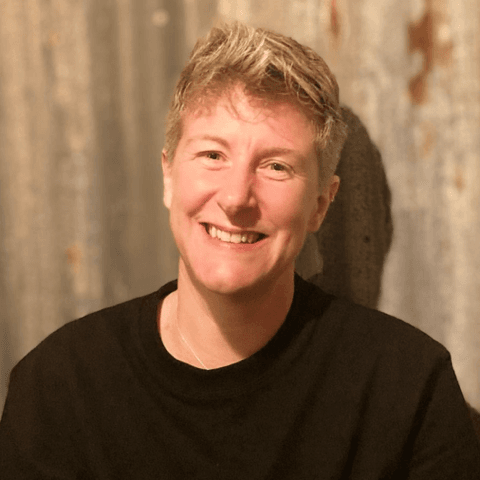
“Using inclusive verbal communication is so important,” says Kim Meeking, an equity specialist in oncology clinical trials, radiotherapy professional, and co-lead for Queering Cancer. “To help 2SLGBTQI+ patients feel welcome in radiotherapy departments, a first step is asking patients how they would like to be addressed, and what pronouns they use. It can help to share your own pronouns too.” Amanda and Kim both advocate for the integration of inclusive data collection (such as the name the patient goes by, their pronouns, sex assigned at birth and their gender identity) throughout the patient journey, so 2SLGBTQI+ individuals aren’t repeatedly forced to “come out” or correct misassumptions made by their radiotherapy team.
Equally important is the physical space: ensuring the availability of gender-neutral, accessible bathrooms and displaying 2SLGBTQI+ specific resources, such as information booklets and posters that reflect diverse relationships and identities.
“Don’t wait until you meet a queer, trans, or non-binary person who needs radiotherapy before assessing your department’s inclusivity.”
When educating colleagues who may be unfamiliar or uncomfortable with 2SLGBTQI+ issues, they recommend reframing the conversation around a universally accepted value, person-centered care.
“Every patient deserves to be treated with compassion and respect, in a way that honors their unique needs, values, and identities throughout radiation therapy.”
“Every patient deserves to be treated with compassion and respect, in a way that honors their unique needs, values, and identities throughout radiation therapy,” Amanda asserts. She encourages practitioners to explore and challenge implicit biases – using tools such as Project Implicit – to ensure that the care they provide is as adaptable and individualized as radiotherapy professionals are accustomed to tailoring care for specific needs, such as mobility challenges or language differences.
Resources for support
For 2SLGBTQI+ individuals navigating a cancer diagnosis, Amanda and Kim offer a message of solidarity and empowerment. With an increasing network of peer support groups and tailored resources – such as this booklet by Macmillan and OUTpatients which covers managing side effects, dealing with body image issues, and/or gender dysphoria, and coming out to your care team.
“In the face of assumptions around sexuality and gender identity, it’s important to lean on your community for support whether that’s friends, family, or chosen family.”
“It can be really helpful to take a trusted person along to appointments, not only as a note-taker but as an advocate,” Kim advises. “In the face of assumptions around sexuality and gender identity, it’s important to lean on your community for support whether that’s friends, family, or chosen family. Above all remember that you’re not alone, your experiences are valid, and you deserve to be treated with dignity and respect,” adds Amanda.
Learn more about the inclusive cancer care work the Queering Cancer team is doing.
LARNPS250630
